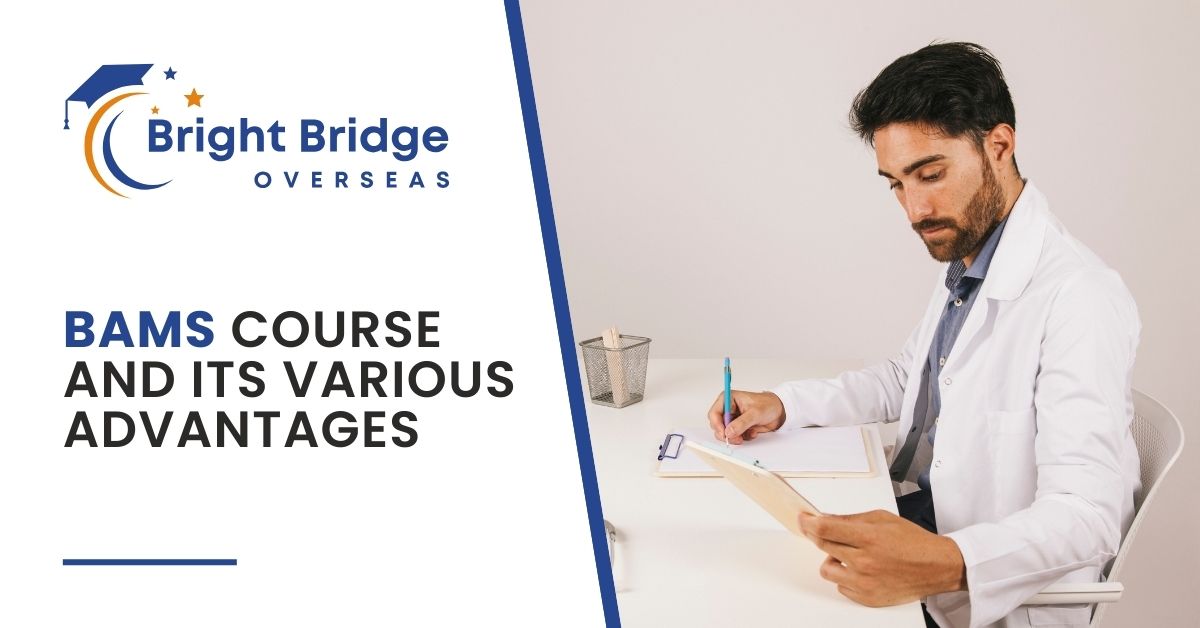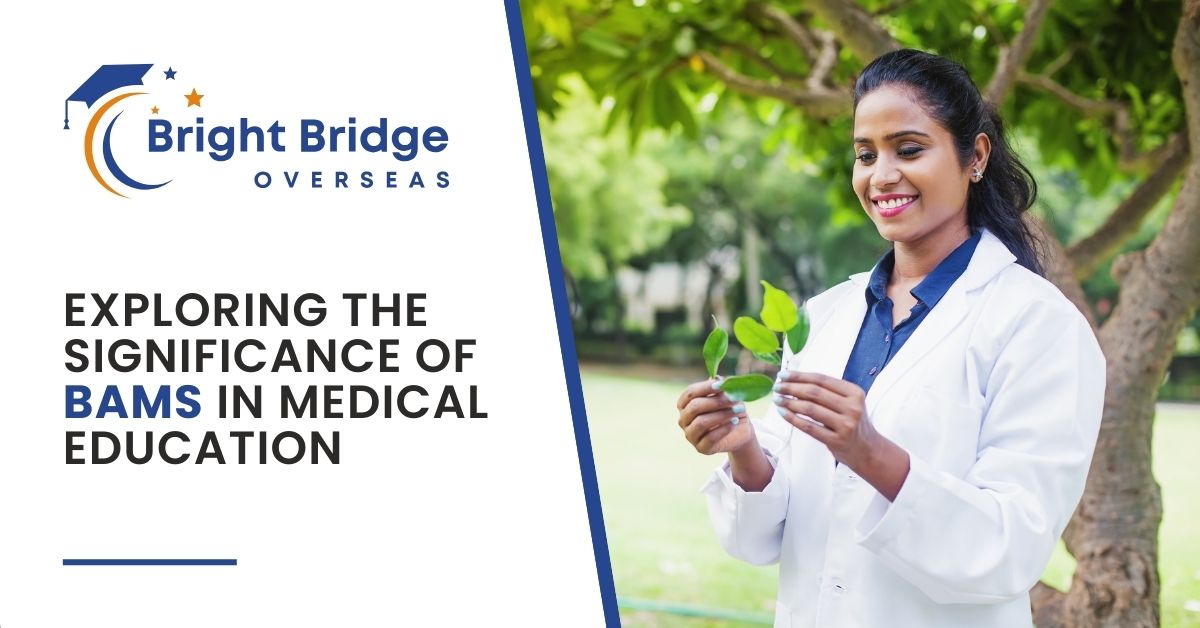Bachelor of Ayurvedic Medicine and Surgery (BAMS) is a popular course for students interested in…

Bachelor of Ayurvedic Medicine and Surgery (BAMS) is an undergraduate degree program that integrates modern medical science with traditional Ayurveda practices. This holistic approach prepares students to diagnose, treat, and prevent diseases using natural remedies and therapies.
Table of Contents
Advantages of Pursuing BAMS
Holistic Healthcare Approach
BAMS emphasizes holistic healthcare, focusing on the balance of mind, body, and spirit. Students learn to use herbal medicines, dietary changes, and lifestyle modifications for comprehensive healing.
Career Opportunities
Graduates can pursue diverse career paths:
Clinical Practice: Establishing Ayurvedic clinics or working in hospitals.
Research: Contributing to advancements in Ayurvedic medicine.
Academia: Teaching future Ayurvedic practitioners.
Growing Global Demand
Ayurveda’s popularity is rising worldwide due to its natural, non-invasive treatments and focus on preventive care. BAMS graduates have opportunities both in India and internationally.
Integration with Modern Medicine
BAMS curriculum includes subjects like Anatomy, Physiology, Pharmacology, and Surgery, integrating modern medical science with traditional Ayurvedic principles.
Cultural Heritage Preservation
Studying BAMS preserves India’s ancient medical heritage. It involves learning from ancient texts and understanding Ayurvedic principles deeply rooted in Indian culture.
How to Pursue BAMS
Eligibility Criteria
- Completion of 10+2 with Physics, Chemistry, and Biology.
- Qualifying for entrance exams like NEET.
Course Structure
- Five and a half years duration, including a one-year internship.
- Practical training in Ayurvedic procedures and treatments.
Frequently Asked Questions
What are the career opportunities after completing BAMS?
BAMS graduates can work as Ayurvedic doctors, set up their clinics, pursue research in Ayurveda, teach in Ayurvedic colleges, or work in healthcare organizations.
What is the duration of the BAMS course?
The BAMS course typically lasts for five and a half years, including a one-year internship period where students gain practical experience.
Is BAMS recognized globally?
BAMS is recognized in India and some countries where Ayurvedic practices are accepted. Graduates can practice in countries like India, Nepal, Sri Lanka, and some parts of Europe.
What subjects are included in the BAMS curriculum?
The BAMS curriculum includes subjects like Anatomy, Physiology, Pharmacology, Surgery, Ayurvedic principles, and treatments.
Can BAMS graduates pursue higher education?
Yes, BAMS graduates can pursue higher education in specialized fields of Ayurveda, public health, hospital management, and more.
How does BAMS differ from MBBS?
BAMS focuses on Ayurvedic principles and natural healing methods, while MBBS focuses on modern medicine and surgical techniques.
What are the advantages of studying BAMS?
Advantages include holistic healthcare training, career flexibility, preservation of cultural heritage, and increasing global demand for natural healing practices.
Are there job opportunities abroad for BAMS graduates?
Yes, BAMS graduates can explore job opportunities in countries that recognize Ayurvedic practices or where there is a growing interest in alternative medicine.
Conclusion
Choosing BAMS offers a unique blend of traditional wisdom and modern medical knowledge, providing a fulfilling career in holistic healthcare. With increasing global acceptance, BAMS graduates contribute significantly to healthcare advancements while preserving ancient healing traditions.


